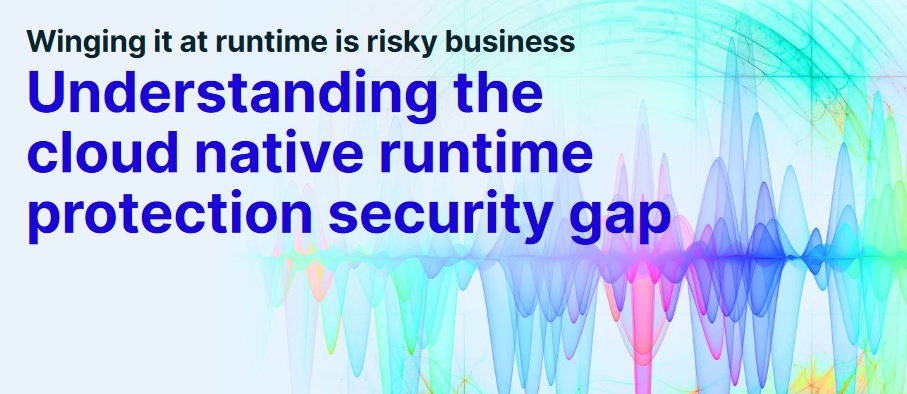Progress announced new powerful capabilities and enhancements in the latest release of Progress® Sitefinity®.
Only 3% of respondents recognize that a container, in and of itself, is not a security boundary, indicating that the default security capabilities of containers are overestimated, according to the 2021 Cloud Native Security Survey from Aqua Security.
This result is especially alarming in conjunction with the fact that only 24% of respondents have plans in place to deploy the necessary building blocks for runtime security.

"The results of the survey showcase a staggering knowledge gap that leads to an underinvestment in a critical part of full lifecycle, end-to-end security for cloud native applications," said Amir Jerbi, co-founder and CTO at Aqua. "When practitioners fail to implement a holistic approach with protecting their workloads at runtime, they are opening up their environments to attackers, since even the most complete ‘shift left’ vulnerability and malware detection cannot prevent zero-day attacks and administrator errors."
The report demonstrates the difficulty and complexity of understanding key cloud native security risks, along with how to counteract them. Despite recent reports showing the increased sophistication of cloud native attacks, only 18% of respondents realize they are at risk for zero days in containerized environments.
Confidence vs. Reality
While 32% of respondents were confident in overall holistic runtime security protection, detailed questions revealed that less than 23% of respondents in fact had the necessary building blocks of runtime security in place.
Supply Chain Risk
A knowledge gap around workload protection has led to a striking number of practitioners who believe they are protected from supply chain attacks in production, but in fact are not. While 73% believed that they could stop software supply chain attacks evading static analysis, there was an apparent misconception about the role of runtime security in achieving this protection.
"There is a concerning overconfidence in the perceived ability to prevent supply chain attacks. The reality is that runtime security is essential because sophisticated supply chain attacks evade static analysis. We see unnamed attackers use legitimate vanilla images to download malicious elements at runtime, Kinsing malware that only downloads in runtime, and attackers like Team TNT who hide their malicious communications attacking our honeypots on daily basis," said Jerbi.
Increasing Container Threats
In a recent threat report, Aqua found that attackers are becoming more proficient at hiding their methods and evading static scanning, while threats to container based environments have become more dangerous and more varied. Over a six-month period, Aqua observed honeypots being attacked 17,358 times, representing a 26% increase from just six months previously. The increasing volume of attacks demonstrates the importance of implementing holistic cloud native security, including runtime protection, in order to protect against attackers who have evaded detection and have access to the production environment.
"Holistic cloud native security should be every practitioner’s goal. It is not just about runtime security or any other one focus area. It is about ensuring the entire application life cycle is covered, from the build to the infrastructure and the workloads," said Jerbi.
Methodology: The study surveyed 150 cloud native security practitioners and executives from IT, Security and DevOps teams, across sectors including financial services, technology, healthcare and pharma, industrials, and retail among others. Participants were from the United States, Canada, United Kingdom, Germany, Australia and India.
Industry News
Red Hat announced the general availability of Red Hat Enterprise Linux 9.5, the latest version of the enterprise Linux platform.
Securiti announced a new solution - Security for AI Copilots in SaaS apps.
Spectro Cloud completed a $75 million Series C funding round led by Growth Equity at Goldman Sachs Alternatives with participation from existing Spectro Cloud investors.
The Cloud Native Computing Foundation® (CNCF®), which builds sustainable ecosystems for cloud native software, has announced significant momentum around cloud native training and certifications with the addition of three new project-centric certifications and a series of new Platform Engineering-specific certifications:
Red Hat announced the latest version of Red Hat OpenShift AI, its artificial intelligence (AI) and machine learning (ML) platform built on Red Hat OpenShift that enables enterprises to create and deliver AI-enabled applications at scale across the hybrid cloud.
Salesforce announced agentic lifecycle management tools to automate Agentforce testing, prototype agents in secure Sandbox environments, and transparently manage usage at scale.
OpenText™ unveiled Cloud Editions (CE) 24.4, presenting a suite of transformative advancements in Business Cloud, AI, and Technology to empower the future of AI-driven knowledge work.
Red Hat announced new capabilities and enhancements for Red Hat Developer Hub, Red Hat’s enterprise-grade developer portal based on the Backstage project.
Pegasystems announced the availability of new AI-driven legacy discovery capabilities in Pega GenAI Blueprint™ to accelerate the daunting task of modernizing legacy systems that hold organizations back.
Tricentis launched enhanced cloud capabilities for its flagship solution, Tricentis Tosca, bringing enterprise-ready end-to-end test automation to the cloud.
Rafay Systems announced new platform advancements that help enterprises and GPU cloud providers deliver developer-friendly consumption workflows for GPU infrastructure.
Apiiro introduced Code-to-Runtime, a new capability using Apiiro’s deep code analysis (DCA) technology to map software architecture and trace all types of software components including APIs, open source software (OSS), and containers to code owners while enriching it with business impact.
Zesty announced the launch of Kompass, its automated Kubernetes optimization platform.
MacStadium announced the launch of Orka Engine, the latest addition to its Orka product line.




